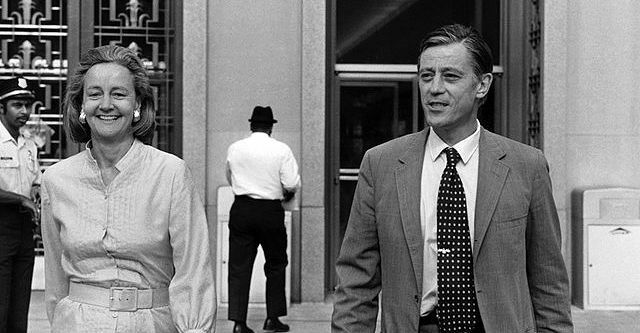
I think the freedom of press is a very Utopian concept. No newspaper or a media house, howsoever powerful, can be completely immune to overt/covert pressure from powerful people/government/institutions they write against. This is true, especially in India, as the government bailed out a lot of media houses from the impact of global financial crisis by giving them all a sizable number of government ads.
But India is not the only country where the media houses are targeted for their investigative reporting. The recently declassified documents from the Nixon Presidential Archives reveal that the Nixon administration threatened The Washington Post for its reporting against President Richard Nixon. A Nixon aide told the investment bank of The Post that a complete change of management at the newspaper was the only solution to ending its war with the US administration.
A January 15, 1973 memo for President Nixon — filed by his Special Counsel Charles Colson — records the details of the conversation Colson had with one Bob Ellsworth (aka Robert F. Ellsworth) on January 12. Ellsworth, a former Congressman, was at that time a General Partner at a New York investment banking firm Lazard Freres and Company.
Lazard Freres, interestingly, was the investment banking firm for The Washington Post. It helped The Post to go public through a stock offering and also helped setup its stock plan.
According to the declassified memo, Ellsworth told Colson that Lazard was not happy with the way The Post was performing. He cites increasing independence of reporters, fierce competition between The Post and The New York Times, and the increasing postal rates as the reasons behind his firm’s concern.
“Their concern is intensified, according to Bob, by not only these problems, but the fact that the Administration appears to be bent on hurting the Post,” the memo notes.
Ellsworth further told Colson that his firm was concerned that the administration’s fight with The Post was hurting the price of the newspaper company and its stock. He referred to the US administration’s strategy of feeding exclusive stories to its rival Washington Star, which was hurting the Post syndicate, and challenging the licenses of the Post company’s Jacksonville and Miami television stations.
Colson told Ellsworth that The Post publisher Katherine Graham was responsible for the difficulties of the company. Ellsworth disagreed and said he felt that Benjamin C. Bradlee (then the Executive Editor of The Post) was responsible for the “unfair” coverage of the Nixon administration. Colson suggested that The Post newspaper should be split away from the rest of its business enterprises. That would enable the administration fight an open, honest war with the newspaper, he added. Ellsworth agreed to give it a thought.
According to the memo, Colson even told Ellsworth that he had a business group ready to buy The Post if Katherine Graham was ready to sell it.
Colson’s memo, while summing up about his lunch meeting with Ellsworth, states: “I’m convinced, based on the lunch, that The Post is hurting, that their investment bankers are putting pressure on them, that our feeding the Star and attacking the Post TV stations has Wall Street concerned over The Washington Post’s financial future, particularly since second class mail rates could make Newsweek very unprofitable. If Newsweek became unprofitable and the two TV station licenses were lost, or even tied up in extensive litigation, The Post as a newspaper would have to carry the entire operation which it probably cannot do.
The parting suggestion by Colson to Ellsworth, according to the memo, is a real clincher. It highlights to what extent the Nixon administration tried to pressurize The Post to fall in line and toe its line.
Colson told Ellsworth, before their meeting ended, that the newspaper can show some evidences of good faith. This would include few friendly editorials on how well the President was handling the Vietnam War, firing Managing Editor Bradlee, and some straight coverage for a change. He even suggested that The Post “could start putting the Watergate case back inside the paper where it belongs instead of blasting it across the front pages,” the memo notes.
Colson concluded in his memo that The Post was worried and Ellsworth had told him that even Katherine was worried about how far the Nixon administration would carry their campaign against the newspaper.
